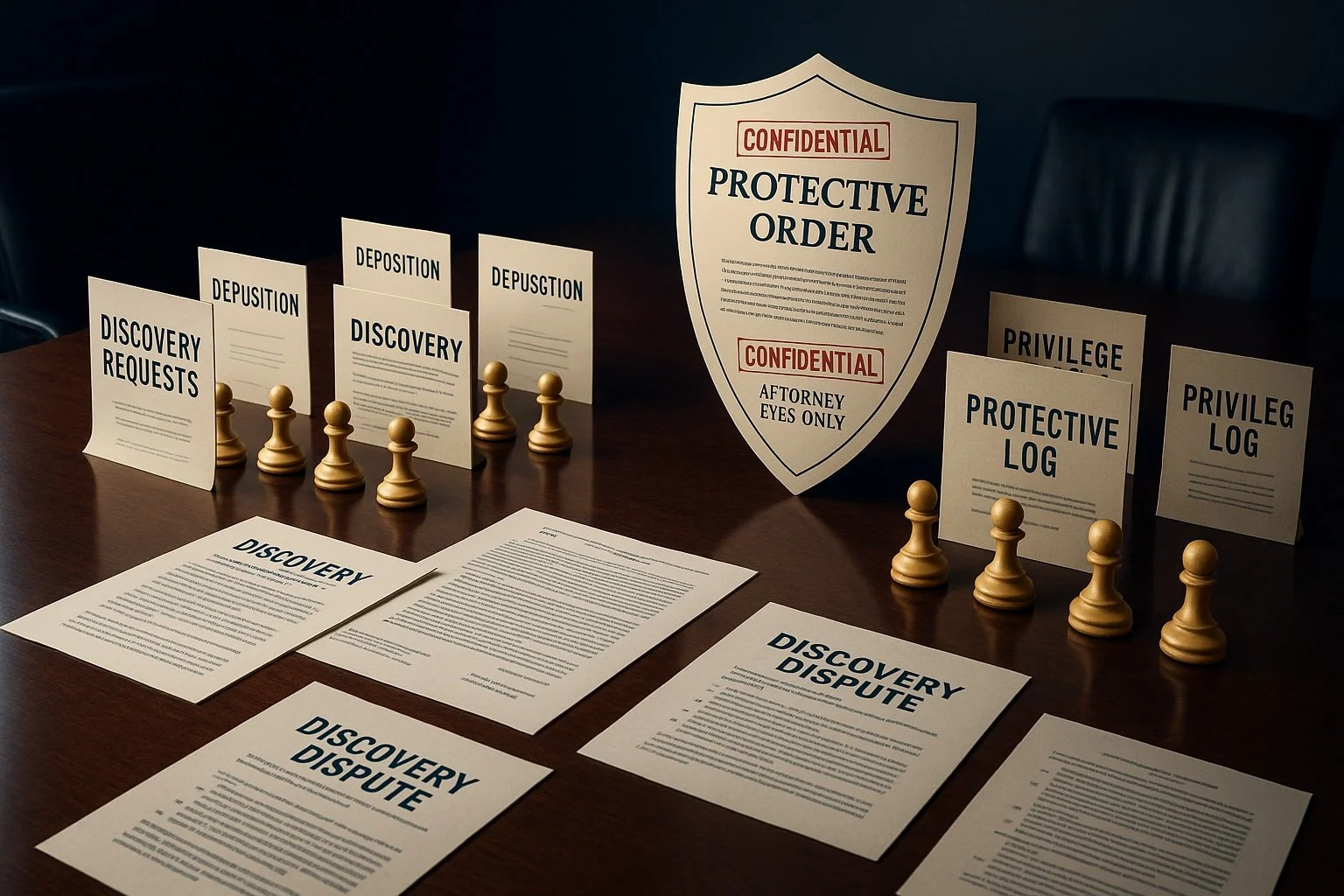Discovery Battles and Protective Orders: Lessons for Plaintiff Lawyers
The Takeaway for Plaintiff Lawyers
Defense counsel often try to cut off key discovery by dressing up delay tactics as “protective orders.” But Georgia law is clear: depositions are presumptively allowed, outright prohibition is rare, and protective orders require evidence. As plaintiff lawyers, we should push back hard against these efforts.
Why This Matters
In the Como case, defendants moved to quash a subpoena for the deposition of Dr. Jason Bariteau, the Chief of Foot & Ankle Surgery at Emory. Their arguments were familiar:
The witness supposedly had “no knowledge.”
A deposition would be “disruptive.”
Plaintiff should take a 30(b)(6) deposition instead.
The “apex doctrine” barred the deposition.
The court had nothing but unsworn lawyer assertions. No affidavit from the witness. No facts, no evidence.
This is not unusual. Defense firms routinely use protective order motions as a tool to delay discovery, shift costs, and dictate strategy. If unopposed, courts sometimes grant them reflexively.
Georgia Law: The Key Points
Broad Discovery Standard: OCGA § 9-11-26(b) permits discovery of any matter reasonably calculated to lead to admissible evidence. The threshold for relevance is very low.
Protective Orders Require Evidence: The moving party must show “good cause” with facts, not conclusory lawyer statements. General Motors v. Buchanan, 313 Ga. 811 (2022).
“Apex” Rule Limited: OCGA § 9-11-26.1 applies only to high-ranking officers of organizations. Doctors in administrative roles don’t qualify.
Ignorance Is No Shield: A witness’s claimed lack of knowledge doesn’t excuse them from deposition. The whole point is to test what they know (or don’t).
Alternative Discovery Doesn’t Control: One party cannot dictate the other’s strategy. The availability of a 30(b)(6) deposition doesn’t bar an individual deposition.
Practical Implications for Plaintiff Lawyers
Always Demand Evidence. If defense counsel moves for a protective order, highlight the absence of affidavits or testimony. Lawyer statements aren’t evidence.
Depose the Named Individuals. Don’t let defendants swap your fact witness for their chosen 30(b)(6) witness. You have the right to both.
Use Interrogatory Answers Against Them. If they identify a person in discovery, that’s your green light for a deposition. Box them in with their own sworn responses.
Highlight Administrative Negligence. Even if a witness claims ignorance of safety policies, that ignorance itself may prove negligent administration.
Frame It as a Rare Remedy. Remind the court that outright denial of a deposition is “very unusual” and “likely an abuse of discretion.” (Buchanan, 313 Ga. at 824).
FAQs for Plaintiff Lawyers
Q: Can the defense block a deposition just by saying the witness has no knowledge?
No. Claimed ignorance is not grounds for a protective order. You’re entitled to test that in deposition.
Q: What if they argue a 30(b)(6) deposition is “enough”?
Georgia law doesn’t let the defense dictate your strategy. You can take both an individual and a 30(b)(6).
Q: How do I counter “oppression” or “burden” arguments?
Point out that all discovery is burdensome. To win, they must show an undue burden, supported by evidence, not lawyer assertions.
Conclusion
Protective orders are meant to prevent abuse, not to let defendants hide witnesses. When the defense tries to shut down legitimate discovery, push back with the law, the record, and the presumption in favor of depositions.
At DEH Law, we’re committed to sharing strategies that help plaintiff lawyers hold institutions accountable. If you’d like to discuss approaches to discovery battles in medical malpractice or negligent administration cases, contact us.
